Plants
-
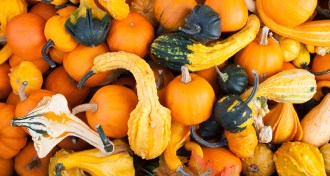 Plants
PlantsAncient gardeners saved the gourd
Domestication might have helped early vine plants like pumpkin survive after seed-dispersing megafauna went extinct.
-
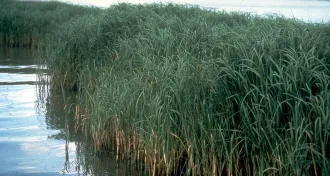 Plants
PlantsMarsh grass masquerades as a native species
The abundant cordgrass found in South American marshes may actually have invaded the region more than two centuries ago, a new study concludes.
-
 Climate
ClimateClimate change could shift New England’s fall foliage
Climate change could make for earlier or later fall color, depending on where you live in New England.
-
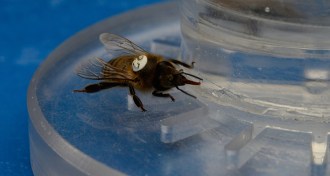 Animals
AnimalsBees get hooked on flowers’ caffeine buzz
Flowers drug honey bees with caffeinated nectar to trick them into returning, causing the bees to shift their foraging and dancing behaviors.
-
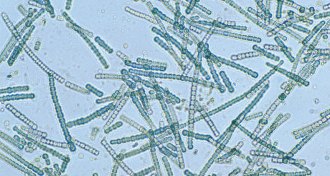 Plants
PlantsEarly cyanobacteria fossils dug up in 1965
In 1965, early photosynthetic plant fossils were discovered. The date of earliest oxygen-producing life forms has since been pushed much earlier.
-
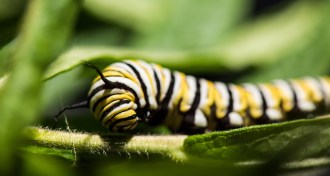 Animals
AnimalsRoot fungi make or break monarchs’ chances against parasite
Fungi that live amid the roots of milkweed plants change the chemicals produced in the plant’s leaves, which can either aid or hinder a monarch butterfly’s ability to fight off parasites.
-
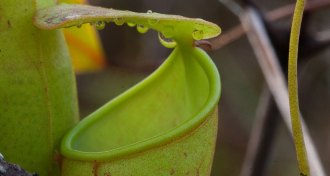 Plants
PlantsRaindrops help pitcher plants trap dinner
Pitcher plants use the force of falling raindrops to fling prey into their traps.
-
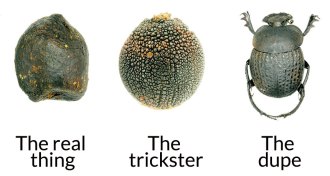 Plants
PlantsStinky seeds dupe dung beetles
Seeds that look and smell like animal poop can trick dung beetles into spreading and burying the seeds.
-
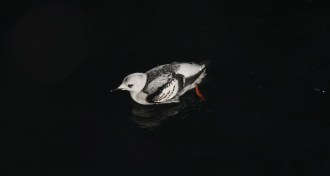 Animals
AnimalsLife in the polar ocean is surprisingly active in the dark winter
The Arctic polar winter may leave marine ecosystems dark for weeks on end, but life doesn’t shut down, a new study finds.
-
 Animals
AnimalsWhy we need predators
It might be easy to say that we should wipe out species that can kill us. But the effects of such action would be far ranging.
-
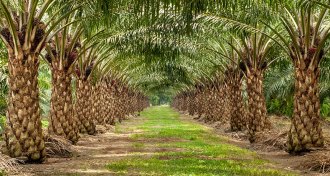 Genetics
GeneticsBad Karma can ruin palm oil crops
Missing epigenetic mark makes for Bad Karma and poor palm oil crops.
-
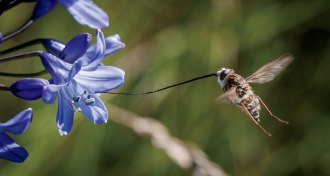 Animals
AnimalsLong-tongued fly sips from afar
Long-tongued flies can dabble in shallow blossoms or reach into flowers with roomier nectar tubes.
By Susan Milius